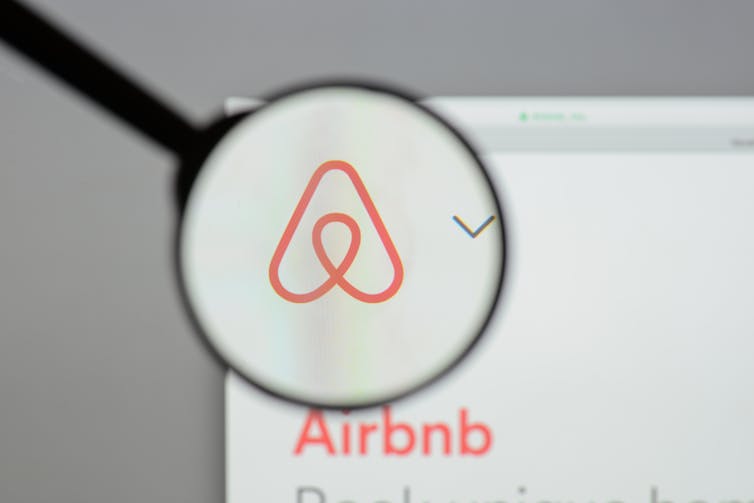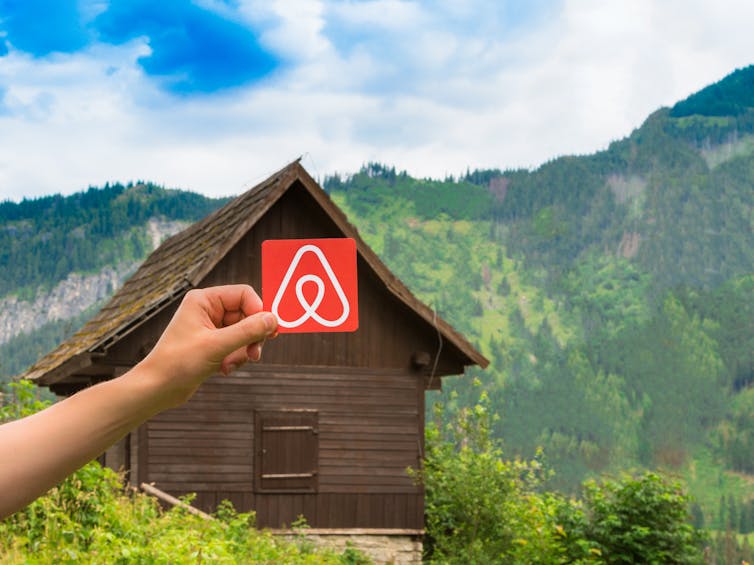
,
It’s been a rollercoaster year for Airbnb and its much-anticipated plans for an initial public offering or IPO. The home sharing platform had planned to file back in March to go public but then Covid-19 hit and its .
Now, it looks like plans are back on track. Airbnb confidentially filed its IPO paperwork with the securities and exchange commission . None of the financial specifics were revealed but the company was in its last funding round in April, which is a long way down from its previous 2017 valuation of US$31 billion.
Of course, like the entire tourism industry, the Covid-19 pandemic has had an enormous effect on Airbnb’s finances. New bookings stopped, cancellation rates soared, to hosts and guests cost millions and , even as cost-cutting measures were implemented. To help mitigate this, it was forced to fundraise in April 2020 with .
So the decision to file its IPO paperwork and potentially list in 2020 was surprising to some. Critics point to the ongoing pandemic and the many issues it continues to throw up: the hosts and guests that have been angered by , new laws and regulations in cities seeking to housing for locals, as well as the . Others point to the from sharing economy bedfellows Uber and Lyft in 2019, not to mention WeWork’s .
Reasons to IPO
But there are lots of reasons to go public, including (shares held by early employees will expire this year). But another big motivation is the fact that Airbnb has rebounded better than its competitors from Covid-19. Booking rates were from June 2020 onwards and the Airbnb model could take advantage of changing host and tourist behaviour during the pandemic.
The company’s overheads are far less than the hotel sector due to its limited fixed costs. It also took advantage of the rise in domestic staycations in across the globe, and the increased demand for countryside retreats where people could safely socially distance. Unlike hotels, short-term rentals tend to facilitate longer stays and can offer , living space, and gardens. that the more spacious environments of short-term lets have been popular with holidaymakers and people wanting to work from home elsewhere.
Despite broad marketing cuts to reduce losses, Airbnb has through past campaigns like “” that tapped into people’s desire to not just visit a place but have a more authentic experience of it. This helped it become the go-to platform for short-term rentals during the pandemic.
Hosts in rural areas also by listing. Meanwhile urban hosts responded by switching their properties to , or dramatically reducing prices.

While the broader tourism and hospitality sector is weak, perhaps Airbnb sees this stage of the pandemic as its time to shine and push ahead with its IPO. Plus, stock markets in the US are on a , fuelled by stimulus from Washington.
Questions remain
Questions remain for Airbnb, however. In particular, when will travel behaviour revert to business as usual, if ever? This will determine whether will lead to profitability.
Then there are the safety issues that have dogged the company for years and played a big role in Airbnb’s . It spent US$150 million on safety initiatives, including verifying the accuracy of listings, creating a 24/7 safety hotline and even .
There is also the threat of more tax and regulation in major markets, which could emerge as authorities seek new revenue to pay for the effect of Covid-19 on their economies. The basis of the favourable market conditions are also open to question, as there is concern that the current strength of the stock markets isn’t based on strong economic fundamentals and is a bubble .
Success in the tourism industry is never a given. Airbnb will be all too aware of this, having totally . Airbnb has more than 7 million listings – dwarfing the largest hotel chain, Wyndham Worldwide, which . But rather than seeing this as a burden, Airbnb is capitalising on it.
But for all its as a different kind of travel provider – one that offers unique, authentic and personalised experiences – Airbnb still sits firmly with the tourism sector. Like its competitors, its success still depends on post-pandemic travel rebound.
, Senior Lecturer in Events and Leisure,
This article is republished from under a Creative Commons license. Read the .



